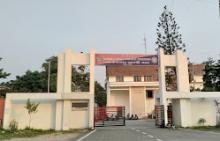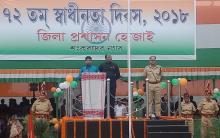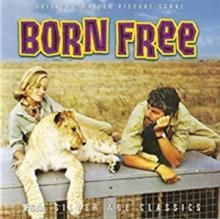A brainstorming consultation on Access and Benefit Sharing (ABS) was organised by Aaranyak, Bombay Natural History Society (BNHS) and Indian NGOs Forum Conservation of Biological Diversity (INFC) here on August 26 last in collaboration with National Biodiversity Authority (NBA).
Aaranyak hosted the session at Indian Institute of Bank Management (IIBM), Guwahati. The timing of this meeting is consciously chosen prior to the international meetings of the CBD that are to be held in India through October 2012. The Government of India for the first time is hosting a Conference of the Parties (COP).
In order to facilitate compliance to the Convention, a global forum where governments, non-governmental organisations, academics, private sector, and other interested groups or individuals share ideas and compare strategies, has been established.
The Convention’s ultimate authority is the Conference of the Parties (COP), consisting of all Governments (and regional economic integration organizations) that have ratified the treaty. The eleventh Conference of the Parties (COP11) of the CBD is through 8-19th October 2012 at Hyderabad, Andhra Pradesh.
Government and civil society representatives from for N-E states -- Manipur, Assam, Nagaland and Meghalaya- participated in the consultation. The resource persons for the consultation were Shalini Bhutani and Kanchi Kohli.
Mr Johri, Member Secretary, State Biodiversity Board, Assam while participating in the deliberation said “We have 2000 villages, so shall we have 2000 committees. The first thing people ask- is what am I going to get? If you say there will be no commercial gains, villagers do not want to take part.
“In Assam, we have made 40 committees. Medicines and essence materials- farmers asking us to register in people’s biodiversity register. To make digital biodiversity register- many repetitions of effort are required. In Assam, we want to hire a consultant and make him digitise in the first go itself. Tree universities have been identified for this.”
Johri informed that State Bio-diversity Board, Assam had proposed an amendment to ABS Act keeping in mind the need for sustainability. He commented that the ABS Act doesn’t talk of conservation and it also doesn’t say all stakeholders should be conserving. “So , who does judge sustainability ? “ he asked. All the participants then underlined the need for monitoring.
Amba from Nagaland said money was a part of the benefits. It was pointed out that there should be talks about ecosystem services and other benefits from biological resources.
During the deliberation question was posed as to what was the Biodiversity Management Committee (BMC) in conservation of local resources. Should it have duties for protection ?
Question by Nandita Hazarika of Ecosystems-India- raised question on the economic angle. She asked, “What is the impact on resource? Do NBA and Nagoya Protocol decide level of exploitation in the Indian context?
Lokesh from Foundation of ecological security – said, “ NE India is heterogeneous . If there is one location with different ethnic groups then how do we deal with this?”
In response Shalini said, “ This is challenge for state and the Centre. It is very difficult to identify benefit claimers. There may be conflicting claims with different communities. Communities should at least first be guaranteed the benefit of access to their local resources. At least for subsistence.”
Manju from Meghalaya said there are many Vaidya’s in our state. They want to know how ABS can benefit them.
One of the questions was whether through sharing knowledge- (or traditional secrets) did it get lost? Participant from Manipur said in that state some people didn’t reveal their knowledge as they didn’t want it to be misused. They only reveal uses of common species.
Mr Rajesh from Manipur said Army was the only monitoring agency for biopiracy there. Smuggled contraband is intercepted by the army on highway. Manipur and Myanmar border is very porous and truckloads of orchids leave Manipur on this border . Arunachal claimed it also had an endemic orchid species which was earlier thought to be found only in Manipur.
Other issues raised by participants included :
· There is no post ABS monitoring and there is an urgent need for the monitoring to prevent bio-piracy.
· BMC (biodiversity management Committees) need not reinvent the wheel- they can build upon existing institutions, like village councils and local bodies.
· All the participants agreed with that monetisation and commercialisation should not be the only way to share ‘benefits’ with local communities.
Access and benefit sharing (ABS) is a concept that has developed under the Convention on Biological Diversity (CBD). The CBD is a multilateral comprehensive, binding global agreement aimed at conservation and sustainable use of the elements of biological diversity. India is a member of this international treaty since 1994 and to translate this treaty in the national space, India's Biological Diversity (BD) Act was passed in 2002.
In the context of biological diversity access means either admittance to bio-rich areas for bioprospecting, or the permission to use biological resources or the people's knowledge associated with them for research, industrial application and/or commercial exploitation. Benefit sharing is one of the three pillars of the CBD. Upon access and use of either local genetic resources or related know-how, this concept is to effect biodiversity justice and arrest 'biopiracy'.
According to the law in India, 'fair and equitable benefit sharing' is defined as that determined by the National Biodiversity Authority (NBA) set up under the BD Act. A decade after the Act the country is still to finalise its domestic ABS regime. Also, since another international protocol, Nagoya Protocol on Access to Genetic Resources and the Fair and Equitable Sharing of Benefits Arising from their utilisation, has been agreed to under the CBD, there is need to bring our domestic law and policy in line with the Protocol. The objective is to be able to guarantee that local communities truly 'benefit'. Therefore, the need to critically look at this area.
To implement the BD Act, Biological Diversity Rules were issued by the Union Ministry of Environment of Forest in 2004. Following that several State Biodiversity Boards were also set up across India. In the NE all eight states Assam, Arunachal Pradesh, Manipur, Megahalaya, Mizoram, Nagaland, Sikkim and Tripura also have SBBs set up and State-level Rules either in draft form or notified and in force.
Yet not all states have experience with Biodiversity Management Committees (BMCs) at the local level. The big question then is if and how ABS processes are working at the local, state and regional levels. Also the need to identify what are the customary rules, local concerns and specific needs of the NE that are to be reflected in the country-wide endeavour to affect ABS.
Hardly a week after his patch-up with chief minister Tarun Gogoi, Dr Himanta Biswa Sarma is desperately trying to refurbish his image with a slew of measures to jack up the ruling party.Dr Sarma who along with Anjan Dutta met Gogoi at his Koinadhara residence on Wednesday morning told reporters that he had suggested some measures which he thinks would help the party retain power in Dispur. The chief minister is understood to have heard Dr Sarma patiently and assured him of the steps to implement the suggestions. Notably, Assam Times broke the story of how the duo mended the differences at the initiative of a senior Guwahati based journalist a couple of days back. The former...







Add new comment